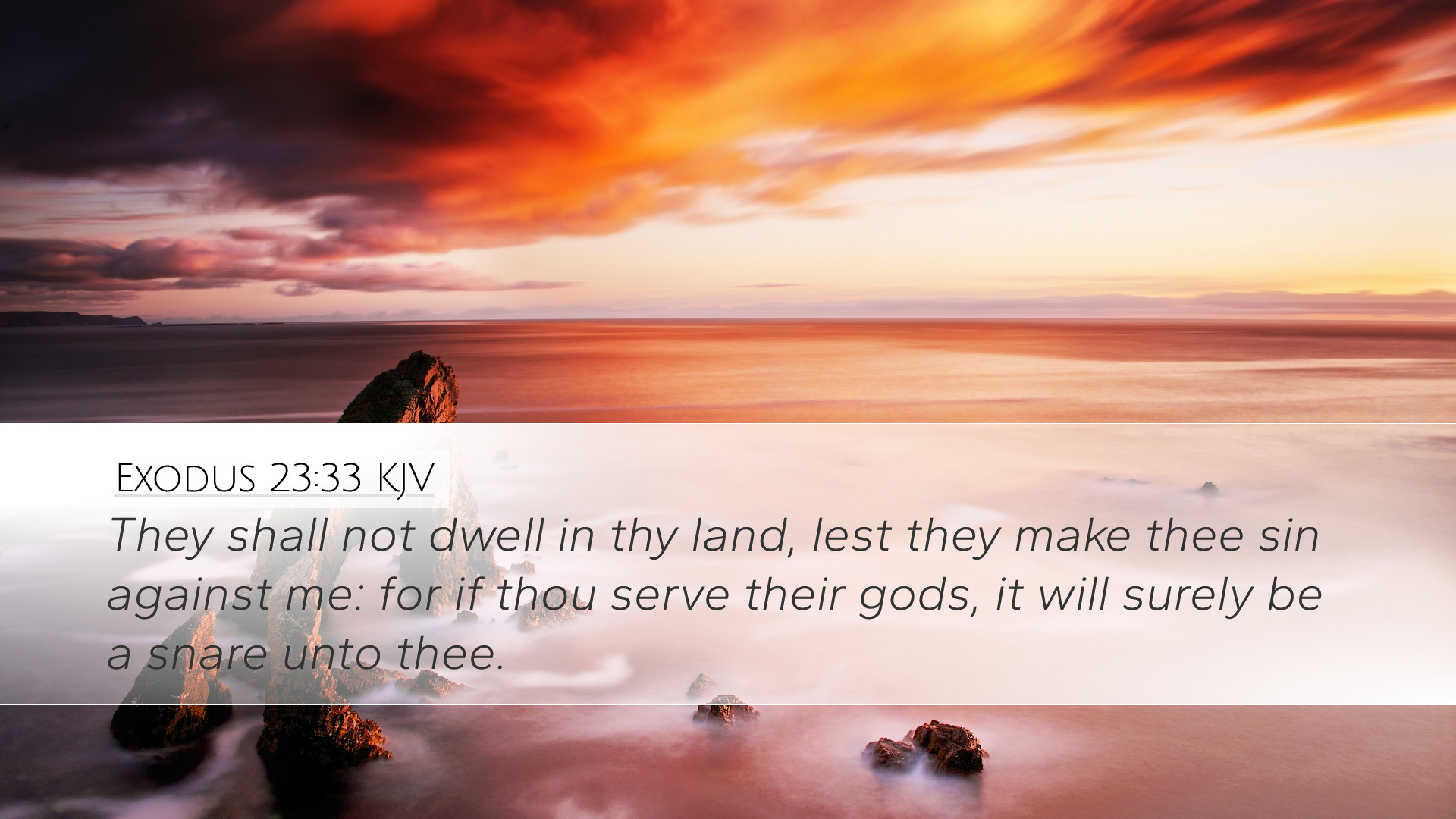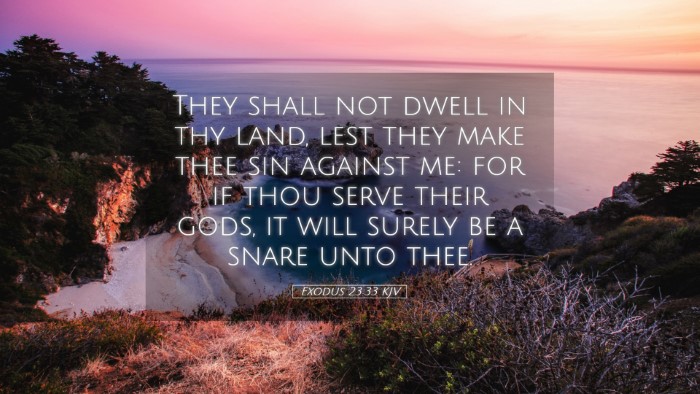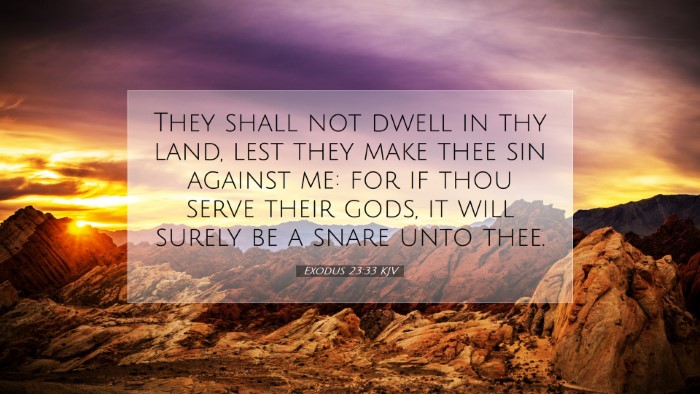Commentary on Exodus 23:33
Bible Verse: "They shall not dwell in thy land, lest they make thee sin against me: for if thou serve their gods, it will surely be a snare unto thee."
Introduction
The verse in Exodus 23:33 serves as a crucial warning from God to the Israelites as they prepare to enter the Promised Land. It reflects God's concern for His people and the implications of straying from His commandments. Various public domain commentaries offer insights into its theological significance, historical context, and practical applications for believers today.
Theological Themes
-
Divine Protection
Matthew Henry emphasizes God's protective concern for His people. He articulates that allowing foreign influences into the land could lead to spiritual corruption. God, as a just protector, warns His people about the dangers of idolatry and its potential to lead them away from worshiping Him.
-
Warning Against Idolatry
Albert Barnes highlights that the land of Canaan was filled with nations whose practices were steeped in idolatry. If the Israelites cohabited with these peoples, they would be tempted to adopt their sinful practices, thereby severing their covenant relationship with God. This highlights the necessity of spiritual purity within the community of believers.
-
Spiritual Accountability
Adam Clarke interprets the verse as a call to recognize the dangers of spiritual compromise. He suggests that the Israelites' failure to heed this warning would not only affect them individually but would also encapsulate a community sin that could provoke divine anger. Hence, maintaining spiritual accountability is vital for both individual and communal faithfulness.
Historical Context
The historical setting of Exodus 23:33 is critical for understanding its message. The Israelites, having escaped slavery in Egypt, were on the verge of conquering the land promised to their ancestors. Matthew Henry notes that this transitional period was fraught with challenges not only militarily but also spiritually. The presence of Canaanite cultures posed a unique challenge that required vigilance to remain faithful to God’s commands.
Practical Applications
-
Isolation vs. Engagement
This verse raises provocative questions about the balance of isolation and engagement in the life of the believer. While separation from sinful influences is necessary, as highlighted in the commentary of Clarke, engagement with the culture around us is also vital for the advance of the Gospel. Pastors are encouraged to help congregants discern how to navigate these waters without compromising their faith.
-
Teaching on Idolatry
In their teaching, leaders can leverage this warning about idols. While the Israelites faced literal idols, modern applications could include materialism, fame, and modern distractions that take the place of God in believers' lives. Barnes advises church leaders to educate their congregations to recognize and resist these modern-day idols.
-
Community Accountability
Just as the Israelites needed to guard against external temptations, today's believers must create communities that hold one another accountable in spiritual practices. Matthew Henry encourages fostering environments where believers can support each other in their spiritual journeys, thus safeguarding against the influences that would lead to sin.
Conclusion
Exodus 23:33 serves as a timeless reminder of the constant vigilance needed in our spiritual lives. The insights drawn from the commentaries of Matthew Henry, Albert Barnes, and Adam Clarke reveal layers of meaning—ranging from God's protective love to the necessity of community accountability. As pastors, students, theologians, and Bible scholars ponder over this verse, may they engage in reflective practices that foster a genuine and committed walk with God, staying alert to the perils of the world that seek to draw them away from His truth.


